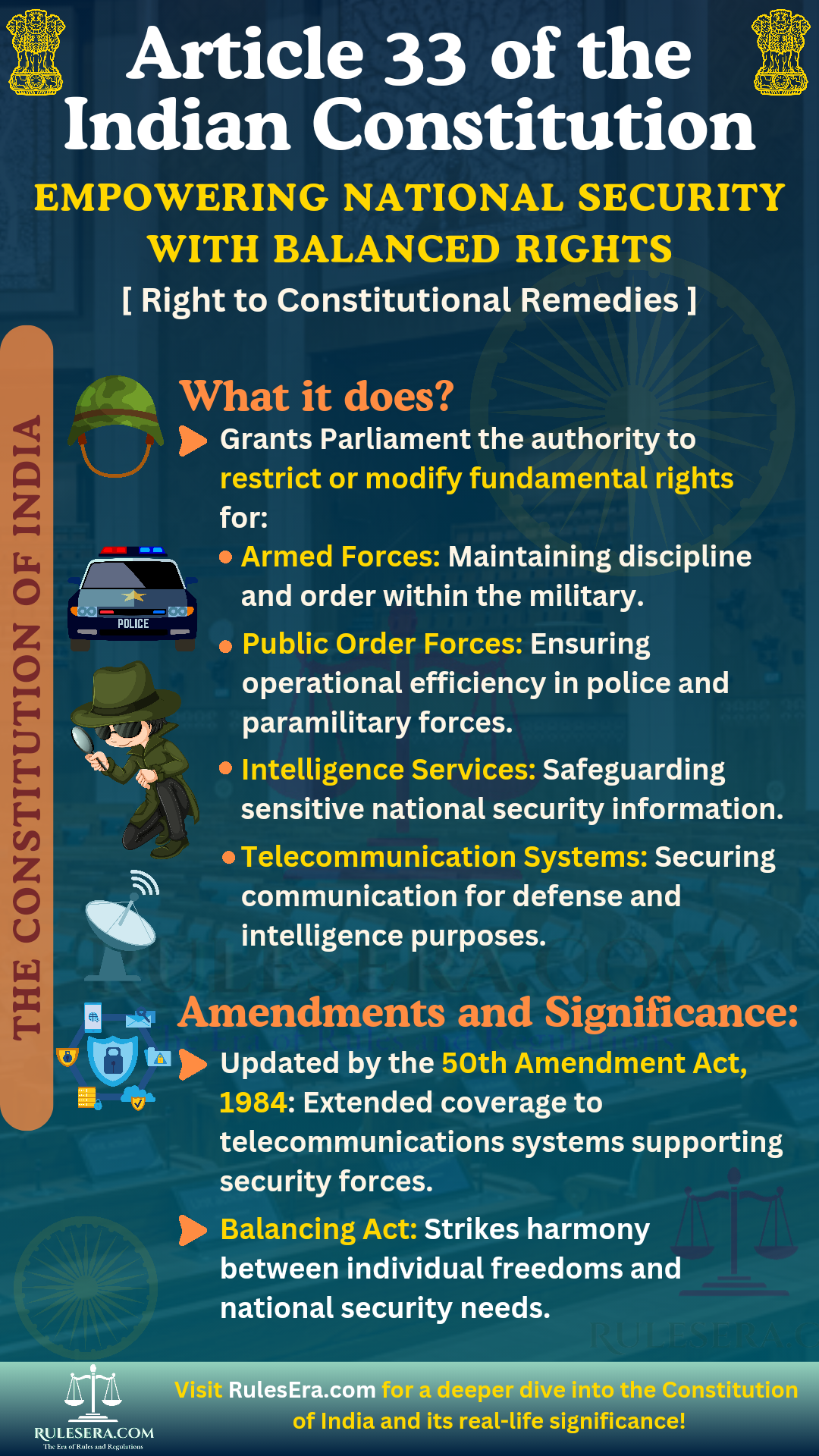Part III: Fundamental Rights
Article 33: Power of Parliament to Modify Rights for Forces:: Right to Constitutional Remedies

Article 33 empowers Parliament to restrict or modify certain fundamental rights for members of the Armed Forces, law enforcement, intelligence agencies, and associated telecommunication personnel to ensure discipline and proper discharge of duties.
Explanation
This article allows for the modification of rights for specific security and law enforcement roles, balancing individual freedoms with the needs of national security and public order.
Key Aspects of Article 33
- Armed Forces: Restrictions ensure military discipline by limiting certain rights, such as free speech and association.
- Public Order Forces: Similar restrictions apply to police and paramilitary forces for orderly conduct and adherence to commands.
- Intelligence and Counter-Intelligence: Limits rights to protect the confidentiality and operational integrity of intelligence operations.
- Telecommunication Systems: Ensures personnel in military and intelligence communication systems adhere to restrictions necessary for secure communications.
Real-Life Applications
Restrictions on social media usage by military personnel to prevent classified information leaks exemplify Article 33 in action. This ensures that security personnel can focus on their duties without compromising sensitive information.
Frequently Asked Questions (FAQs):
Article 33 allows restrictions on rights such as freedom of speech, assembly, and association for members of the Armed Forces and law enforcement agencies.
Restrictions help maintain discipline, operational security, and the proper discharge of duties among personnel in sensitive roles, ensuring national security.